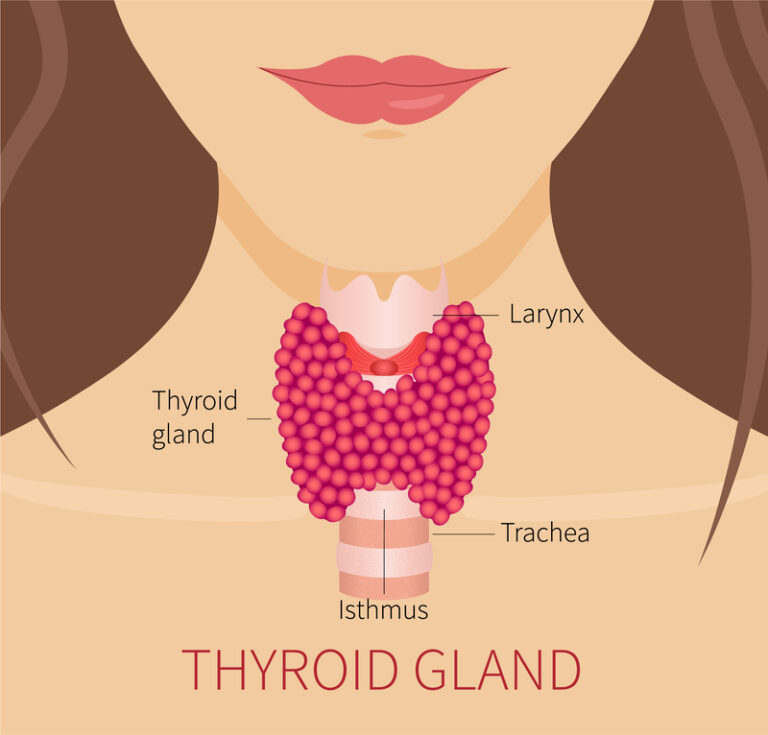I remember a couple of decades ago, it seemed only overweight women had thyroid disease. Boy has that changed! It is estimated that 1 in 13 (or 20 million people in the US) have thyroid disease and another 1 in 20 (13 million) are undiagnosed. That’s staggering! In 1924 we started putting iodine into our salt to combat thyroid disease. So why is thyroid disease still on the increase?
First of all, the body responds better to both potassium iodide and iodine, together. Iodized salt contains only iodide. Fluorine and chlorine (found in our water), and bromine (found in commercially prepared breads and carbohydrates) all counter iodine which contributes to iodine deficiency. Although iodized salt seems to have reduced goiter, the incidence of auto-immune thyroid conditions have skyrocketed.
The whole body needs iodine. The adrenals, gonads, stomach, intestines, salivary glands, thymus, skin and breasts all need it. The thyroid gland only uses a small percentage of iodine, the majority goes to the breast, with the remaining to every cell in the body. Dr. David Brownstein states that the studies linking breast cancer and iodine deficiency are overwhelming. Obviously, there are many factors involved in breast cancer, but iodine deficiency should be considered when looking for causative factors.
The thyroid produces 3 primary hormones: Thyroxine, Triiodothyronine and Calcitonin. It’s responsible for regulating temperature and metabolism, and affects the rate of growth and function of many systems. It plays a role in increased mental acuity, maintenance of blood pressure, heart rate, and muscle tone. It is even important for digestion and reproductive functions. Calcitonin regulates calcium in the blood and increases bone storage of calcium. The thyroid is also supposed to weaken and kill germs that are circulating in the blood.
Symptoms of a lower functioning thyroid include hair loss, dry skin, sensitive to cold, loss of eyebrow edges, fatigue, weakness, depression, irritability, loss of memory, loss of libido, muscle achiness, constipation and weight gain. Many times the thyroid isn’t working up to par, but lab tests say it is “okay.” Remember, labs are based on the point of crisis, not on healthy values. For instance if a normal TSH (test to measure thyroid “health”) is .5 to 5.0 and your test one time says you’re at 5.0 (“normal”), then the next time it says 5.1 (“abnormal”), did you just go from perfect to diseased because of the change of 1/10 of a point? No, your thyroid had been going down for quite some time and finally got to the pathologic state, or state of crisis. The frustration is in getting the help before it is in a crisis (although there is much you can do even when medically diagnosed with thyroid disease). First it is helpful to review why it is malfunctioning in the first place. Iodine is only a part of a larger stress on the thyroid. There are other organs and glands that put a strain on the thyroid, and they too must be addressed. Then you have to work on the other causative factors which generally include diet, lack of rest, harmful chemicals, etc. that caused the thyroid to get sick in the first place.
©2011 Holly A. Carling, O.M.D., L.Ac., Ph.D.







